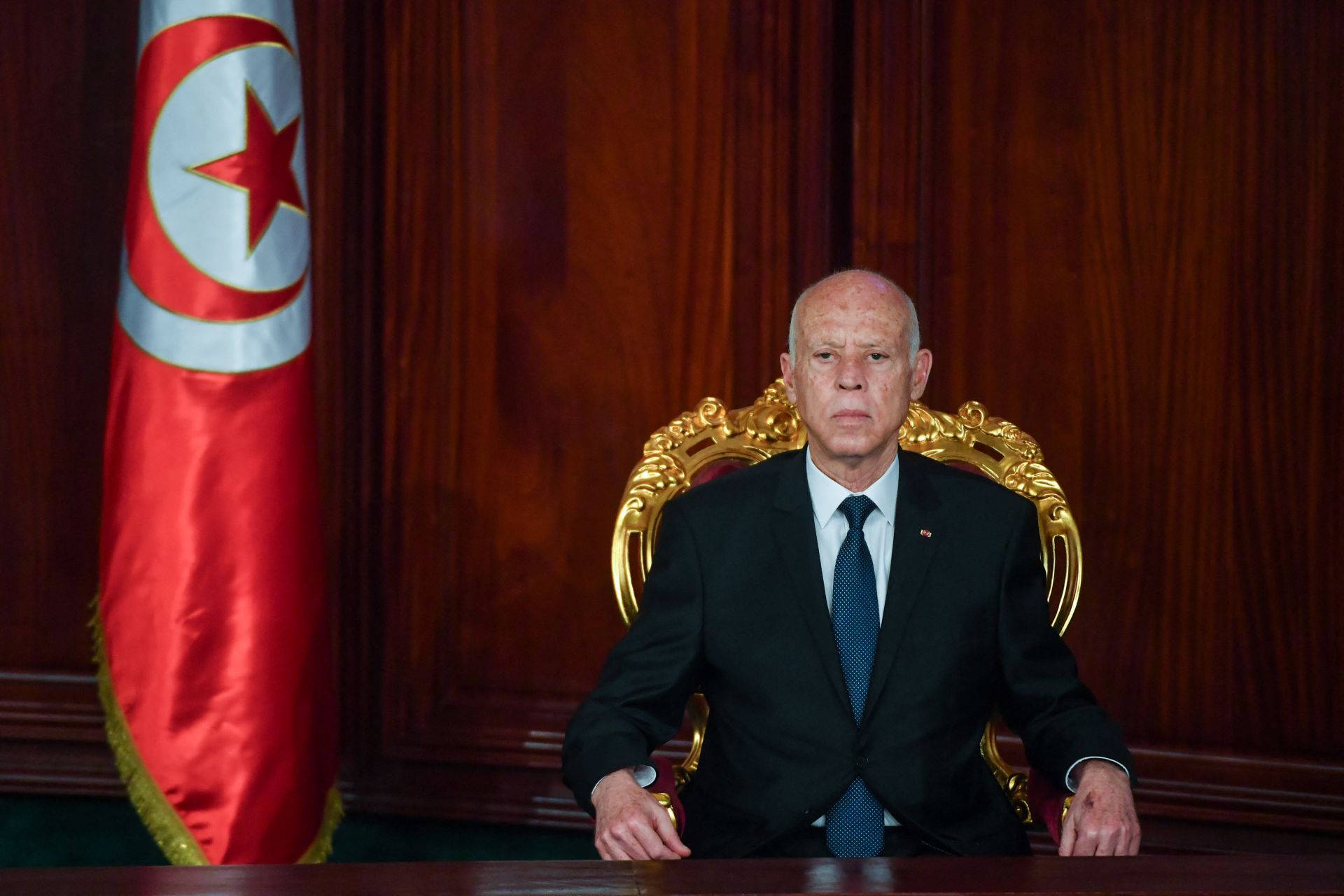- Home
- Middle East
- Tunisian Court Sentences Opposition Figures to Up to 66 Years in Mass Trial

Tunisia's President Kais Saied attends his swearing-in ceremony before the National Assembly in Tunis on December 23, 2021. ©Fethi Belaid / AFP
A Tunisian court has handed down prison sentences of up to 66 years to multiple defendants, including prominent opposition figures, in a mass trial that has been criticized by rights groups.
Described by a defense lawyer as a "masquerade," the trial is unprecedented in scale, with around 40 defendants, including vocal critics of President Kais Saied.
A prosecutor, cited by local media on Saturday, announced sentences ranging from 13 to 66 years for the defendants, who are accused of "conspiracy against state security" and "belonging to a terrorist group."
However, a list provided to AFP by several lawyers, and "subject to official confirmation," indicates minimum sentences of four years.
Among those sentenced were well-known opposition figures, lawyers, and businesspeople, some of whom have already been imprisoned for two years, while others are in exile or still free.
Appeals are planned, according to defense lawyer Abdessatar Messaoudi.
Bassam Khawaja of Human Rights Watch posted on X, stating, "The court did not give even a semblance of a fair trial." He added that the charges "appear unfounded and are based on no credible evidence."
According to the list provided by lawyers, those accused who are abroad, including French intellectual Bernard-Henri Lévy, received 33-year sentences.
The same penalty was handed down to feminist activist Bochra Belhaj Hmida and the former head of the presidential office, Nadia Akacha.
Issam Chebbi and Jawhar Ben Mbarek of the opposition National Salvation Front coalition, as well as lawyer Ridha Belhaj and activist Chaima Issa, were sentenced to 18 years in prison, Messaoudi told AFP.
Harshest Penalty
Activist Khayam Turki was handed a 48-year sentence, while businessman Kamel Eltaief received the harshest penalty: 66 years in prison, according to the list.
Turki’s cousin, Hayder Turki, expressed his "deep sadness" over the verdict, saying, "He doesn't deserve this — he's a great man. His 'crime' was being involved in politics."
Two former leaders of the Islamist Ennahdha party, which was Saied's main rival, were also sentenced. Abdelhamid Jelassi and Noureddine Bhiri received 13 and 43 years, respectively, according to the list.
Kamel Jendoubi, a rights advocate and former minister tried in absentia, decried a "judicial assassination" by the courts.
"This is not a judicial ruling but a political decree executed by judges under orders, by complicit prosecutors, and by a justice minister," Jendoubi charged, accusing them of serving "a paranoid autocrat."
Since Saied launched his power grab in the summer of 2021 and assumed total control, rights advocates and opposition figures have condemned the rollback of freedoms in Tunisia, where the 2011 Arab Spring began.
Late on Friday, defense lawyers denounced the trial after the judge began deliberations without hearing from either the prosecution or the defense.
One lawyer, Samia Abbou, told AFP there had been "flagrant violations of judicial procedure," with the accused "not heard" during what she called the "masquerade."
Friday’s hearing lasted most of the day and was held amid tight security. Media and foreign diplomats were barred from the proceedings.
Since the trial began on March 4, defense lawyers have repeatedly called for all the defendants to appear in court, including at least six who went on a hunger strike.
The lawyers denounced the case as "empty," while HRW stated that the trial is taking place in the context of repression, with Saied "weaponizing the judicial system to target opponents and dissidents."
Analyst Hatem Nafti posted on X that any acquittal in the mass trial "would have negated the conspiratorial narrative that the regime has relied on since 2021" and that it is "accepted by a large part of the population" due to restricted media coverage.
With AFP
Read more



Comments